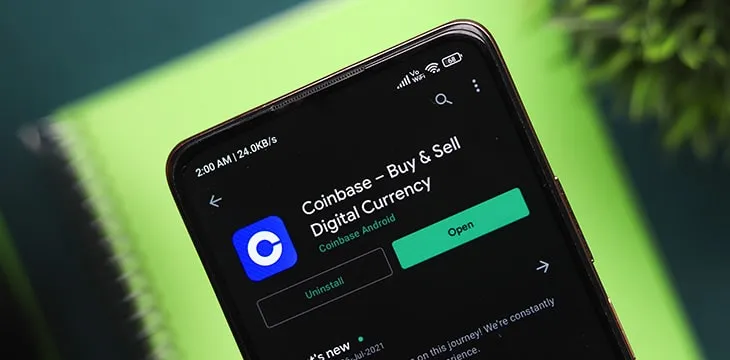|
Getting your Trinity Audio player ready...
|
“We are not aware of any crypto exchange using UPI.”
This statement from the National Payments Corporation of India (NPCI), the entity that governs India’s Unified Payments Interface (UPI), came out hours after Coinbase launched its full-service trading operations in India and claimed its organization will broaden its product offerings in the country.
Statement by NPCI as on 7th April 2022. With reference to some recent media reports around the purchase of Cryptocurrencies using UPI, National Payments Corporation of India would like to clarify that we are not aware of any crypto exchange using UPI. Please see attached document pic.twitter.com/lGTcaSLKeC
— NPCI (@NPCI_NPCI) April 7, 2022
This is interesting timing, almost as interesting as the knowledge that Coinbase (NASDAQ: COIN) has been recruiting heavily in India for the past six months even though the Indian government announced “stringent” digital currency tax regulations on March 29, 2022. Taken together, it does not paint a rosy picture for digital currency investors in India.
“We saw it coming,” Kapil Jain of BSV Blockchain Association told CoinGeek. “They [Coinbase] were heavily recruiting for the past six months. Compliance will be a beauty to watch in India. Coinbase won’t be able to get away by saying buzz words. Digital currencies are mainly used to bypass legal restrictions or a replacement of Hawala (money laundering) network and funding of many non-profits was recently cut-off due to AML rules. WazirX (Binance) is already under tax raids and scrutiny.”
Coinbase CEO and co-founder Brian Armstrong recently announced that his company has already invested $150M in Indian startups and that it will hire 1,000 people in India in 2022. Coinbase is already a major investor in two leading digital currency exchanges in India: CoinSwitch Kuber and CoinDCX. Coinbase allegedly began testing UPI payments a few weeks back, announcing their official launch at its maiden event on April 7 in India.
On Sunday, the U.S.-based exchange announced that it has temporarily disabled buying digital currencies via UPI less than four days after launching the trading service in India. “Purchases with this payment method are temporarily unavailable,” according to the Coinbase statement, although the platform continues to allow selling tokens via Immediate Payment Service.
What is UPI?
The term stands for Unified Payments Interface, a system through which residents of India can transfer money between bank accounts. They can send and receive money or scan a QR code to pay an individual, merchant, or service provider to shop, pay bills, or authorize payments. Payments via phone can be made by downloading a mobile payment app and the payee’s virtual address. The payments can be made instantly and directly to the accounts of a vendor or a person in a single step and with no fee.
The payment system is functional 24/7 all-year round. Users can transfer up to INR 1 lakh (US$1,300) in a single UPI transaction. The system has become the most popular way of performing online transactions in India.
Why India?
India is a huge market, population-wise, with approximately 20 million technology-savvy investors who are, for the most part, misinformed about digital currencies. Is Coinbase capitalizing on the hype created by the Indian government and its new regulation? One BSV entrepreneur, who asked to remain unnamed, thinks so.
“Sometimes regulation has the opposite effect as the headline; it actually determines the rules by which rule-abiding companies can play. Once rules are laid down, people read those rules and figure out clever ways to “abide” by them, but profit by them,” they said.
Indeed, Coinbase has expressed interest in launching their public-facing products in countries with clearly defined digital currency regulations. As one such country, users in India will be able to add money to their Coinbase accounts using the UPI network. That’s the plan, anyway. As an incentive, Coinbase announced that it will offer US$2.65 to everyone in India who signs up for the Coinbase app.
The main component of Coinbase’s global strategy, according to their launch event, is to get digital currency in the hands of anyone who wants it, regardless of their financial status. It particularly stresses promotion of the non-custodial Coinbase Wallet among people in India.
Satyarishi Nakamitra, a BSV entrepreneur based in India said: “They’re probably just banking on the numbers. A lot of people are still willing to gamble. People in small towns are staking their life savings on random digital currencies, which is sad.”
What’s next?
While Coinbase is establishing and launching their trading operations in India, the authorized body of payments (NPCI), on the other hand, has an entirely different plan. NPCI refused to even acknowledge the existence of any digital currency exchange in India using UPI, hours after Coinbase announced their launch at a maiden event in India.
The government of India has not banned digital currencies and have recently clearly defined the related regulations, but the Reserve Bank of India (country’s Central bank) continues to maintain a tough stance towards all virtual digital assets. Time shall tell whether Coinbase will be able to set up their shop among billions of Indians or India will go after them the way they are scrutinizing other cryptocurrency exchanges (Binance’s WazirX) right now.
Watch: CoinGeek New York panel, The future of digital asset trading

 07-06-2025
07-06-2025 





